#1800s literature
Text

#crime and punishment#fyodor dostoevsky#teehee#literature#funny memes#funny#literature memes#memes#lit memes#meme#fypシ#19th century literature#1800s#1800s literature#classic literature#russian literature#Преступление и наказание
43 notes
·
View notes
Text

Nathaniel Hawthorne writing about Herman Melville. Journal entry date: November 12, 1856
“It is strange how he persists — and has persisted ever since I knew him, and probably long before”
Source: Jay Leyda, The Melville Log, A Documentary Life of Herman Melville: 1819-1891, vol. II
#Nathaniel Hawthorne#Hawthorne#Herman Melville#Melville#american lit#american literature#literature#romanticism#1800s#19th century lit#19th century literature#1800s literature#journal#The Melville Log#jay leyda#leyda
27 notes
·
View notes
Text

More vampire stories from the Napoleonic era
From Manuscrit trouvé à Saragosse (The Manuscript Found in Saragossa), by Jan Potocki, published between 1805-1815
#Jan Potocki#Potocki#Manuscrit trouvé à Saragosse#vampires#horror stories#horror#french literature#vampire stories#vampire#napoleonic era#napoleonic#first french empire#french empire#French lit#France#Poland#polish literature#The Manuscript Found in Saragossa#The Saragossa Manuscript#Spain#19th century#19th century literature#1800s literature#paranormal
18 notes
·
View notes
Text
Can we please talk about Sof'ja Tolstaya?
She became Leo Tolstoy's wife at 18, when he was 34. She was an amazing and strong woman, who had to deal with an incredibly misogynistic and lunatic husband, 13 children, and was forced to give up on all her literary aspirations – yet she wrote.
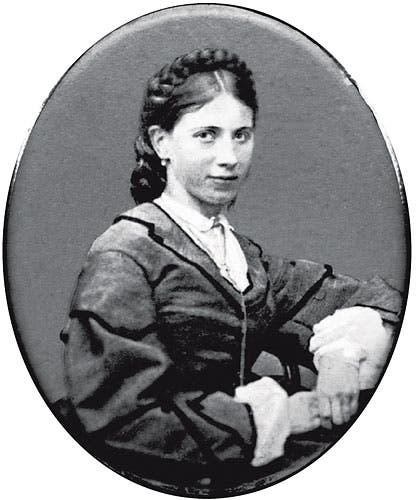
Her main works of fiction, two novellas she wrote as a response to her husband's The Kreutzer Sonata, didn't get published during her life, for they were extremely critical of Lev's work.
Whose fault? and Song Without Words were rediscovered and made accessible to a wider public only in the 21st century, along with her diaries, spanning through decades, and an autobiography.
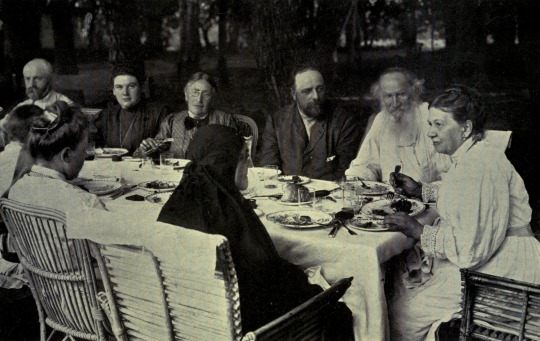
Sofja (head of the table, to the right), and Lev (first man on her right) with their family; Cassell and Co, NY, 1911
Some useful sources:
Wikipedia article dedicated to her
short and eloquent article on The Guardian
free online copy of Autobiography of Sophie Andreevna Tolstoi on archive.org
SoundCloud podcast episode "Sofia Tolstoy" by John Sandoe Books (I haven't personally listened to it)
#Sophia Tolstaya#Sofija Tolstaya#leo tolstoy#lev tolstoj#russian literature#I don't like identifying her as someone's wife right in the title but it's an attention grabber#I'm really looking forward to reading#Song Without Words#bookblr#books#whose fault?#book recommendations#book recs#feminist literature#women authors#1800s literature#literature#софья толстая#лев толстой#the kreutzer sonata#alt text
97 notes
·
View notes
Text
"And there lay the steed with his nostril all wide, / But through it there rolled not the breath of his pride; / And the foam of his gasping lay white on the turf, / And cold as the spray of the rock-beating surf.
And there lay the rider distorted and pale, / With the dew on his brow, and the rust on his mail: / And the tents were all silent, the banners alone, / The lances unlifted, the trumpet unblown."
George Gordon Byron, The Destruction of Sennacherib (1815)
#quotes#literature#lit#poetry#spilled ink#british literature#british poetry#queer poets#biblical poetry#war poetry#1800s poetry#1800s literature#english romanticism#british romanticism#george gordon byron#george gordon#lord byron
7 notes
·
View notes
Text

"The Heart asks Pleasure – first" (poem number 536) by Emily Dickinson
#emily dickinson#art#poetry#poems and poetry#poem#1800's#1800s aesthetic#1800s#1800's art#mid 1800s#1800s art#19th century art#19th century#19th century literature#1800s literature#1800's literature#19th century poetry#19th century poem#1800s poetry#1800's poetry#1800s poem#art history#artists on tumblr#aesthetic#tumblr#literature#american art#american literature#american poetry#woman artist
26 notes
·
View notes
Text
Recently I got back into gothic literature again and now The Portrait of Dorian Gray is stuck on mind…
I can’t help but think that Dorian and Reaver would definitely be besties. And the fact he reminds me of Reaver in a way.
#dorian gray#gothic literature#1800s literature#fable reaver#reaver#also Dorian Gray matches Reaver’s bisexual energy#fable 2#fable 3#they definitely would be chaotic bisexuals#fable games
4 notes
·
View notes
Text
"Dulce it is, and decorum, no doubt, for the country to fall,—to / Offer one's blood an oblation to Freedom, and die for the Cause;"
Amours de Voyage ii.ii, Arthur Hugh Clough
#19th century#19th century literature#english literature#1800s#1800s literature#1840s#verse novel#this is so enjolras-core#like tell me he wouldn eat this up#jehan probably wrote shit like this
3 notes
·
View notes
Text
"I work, my lord, to live and secure my pension for when I'm old.
And I do not care about the title: I already had so many of them!...
The world is similar to amateur theater, it is indecent to push yourself into the leading role and reject the background roles.
In the end, any role is good as long as it is played with artistry and not taken too seriously."

"Pracuję, panie, aby żyć i zabezpieczyć sobie rentę na starość.
A o tytuł nie dbam: tyle ich już miałem!…
Świat podobny jest do amatorskiego teatru więc nieprzyzwoicie jest pchać się w nim do ról pierwszych, a odrzucać podrzędne.
Wreszcie, każda rola jest dobra, byle grać ją z artyzmem i nie brać jej zbyt poważnie."
3 notes
·
View notes
Text
"women, right? like, why kiss a woman when you can just like, kiss me on the mouth, like right now. it would be so hilarious. it would show the women their place right away. we should host a party but not invite any women – that'll show em – hell dont invite anyone else besides us two it'll be so funny bro and like at the party we can have wine and share a bed for the night – that will really show women where they belong"
#tumblrpost#shitpost#shitposting#tumblr memes#textpost#text post#tumblr writes#poets on tumblr#picture of dorian gray#19th century#1800s literature#literature#tumblr writing? i guess?#shit posting#no context#copypasta#gay men#gay literature#oscar wilde#old literature#gay writing#what#artists on tumblr#queer artist#queerness#text posts#my text#out of context shit#out of context quotes
1 note
·
View note
Text

Jane Austen, from Sense and Sensibility
#jane austen#sense and sensibility#novel#lit#literature#english literature#typo#typography#words#fragments#feelings#1800s#*
15K notes
·
View notes
Text
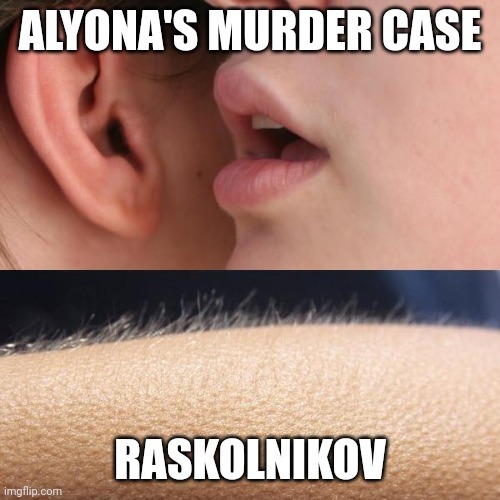
#i'm just gonna keep posting these#crime and punishment#fyodor dostoevsky#fyodor Dostoyevsky#literature#funny memes#funny#literature memes#memes#lit memes#meme#fypシ#russian literature#19th century literature#1800s literature#1800s#19th century#raskolnikov#dostoevksy#dostoyevsky
17 notes
·
View notes
Text

Friedrich Hölderlin, Hyperion
#Friedrich Hölderlin#Hölderlin#Hyperion#quotes#quote#romanticism#german romanticism#literature#lit#german literature#1800s#1800s literature#19th century lit
4 notes
·
View notes
Text
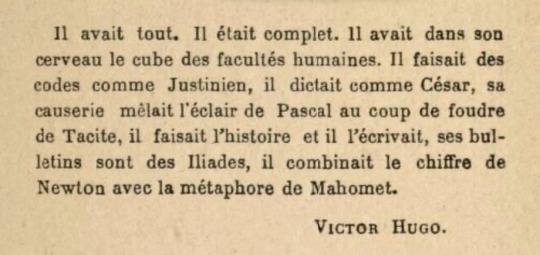
“He had everything. He was complete. He had in his brain the sum of human faculties. He made codes like Justinian, he dictated like Caesar, his conversation was mingled with the lightning-flash of Pascal, with the thunderclap of Tacitus, he made history and he wrote it, his bulletins are Iliads, he combined the cipher of Newton with the metaphor of Mahomet.” — Victor Hugo, about Napoleon
#victor hugo#Hugo#quote#Napoleon#napoleon bonaparte#French#french literature#1800s literature#1800s#book pics#quotes#literature#les miserables#Les mis#history#french history
28 notes
·
View notes
Text
reblog if you, too, are subject to brief visitations of insanity
#carmilla quarterly#Carmilla: Ch.4-7#Her Habits – A Saunter#carmilla#sheridan le fanu#gothic novel#gothic literature#1800s literature#classic literature#classics daily#bookblr#tumblr university#currently reading#current read#book memes#mental illness cw
87 notes
·
View notes
Text
An Island Garden
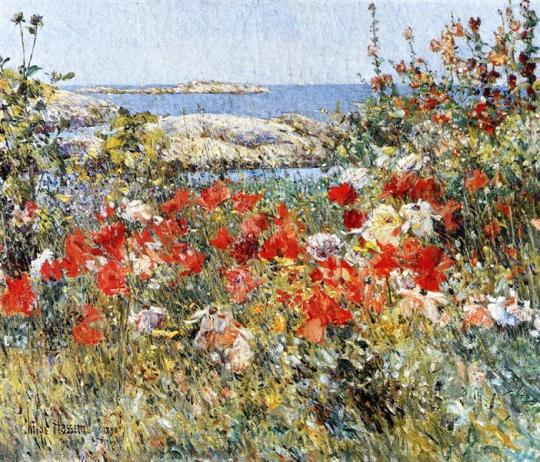
The garden suffers from the long drought in this last week of July, though I water it faithfully. The sun burns so hot that the earth dries again in an hour, after the most thorough drenching I can give it. The patient flowers seem to be standing in hot ashes, with the air full of fire above them. The cool breeze from the sea flutters their drooping petals, but does not refresh them in the blazing noon. Outside the garden on the island slopes the baked turf cracks away from the heated ledges of rock, and all the pretty growths of Sorrel and Eyebright, Grasses and Crowfoot, Potentilla and Lion's-tongue, are crisp and dead. All things begin again to pine and suffer for the healing touch of the rain.
Toward noon on this last day of the month the air darkens, and around the circle of the horizon the latent thunder mutters low. Light puffs of wind eddy round the garden, and whirl aloft the weary Poppy petals high in air, till they wheel like birds about the chimney-tops. Then all is quiet once more. In the rich, hot sky the clouds pile themselves slowly, superb white heights of thunder-heads warmed with a brassy glow that deepens to rose in their clefts toward the sun. These clouds grow and grow, showing like Alpine summits amid the shadowy heaps of looser vapor; all the great vault of heaven gathers darkness; soon the cloudy heights, melting, are suffused in each other, losing shape and form and color. Then over the coast-line the sky turns a hard gray-green, against which rises with solemn movement and awful deliberation an arch of leaden vapor spanning the heavens from southwest to northeast, livid, threatening, its outer edges shaped like the curved rim of a mushroom, gathering swiftness as it rises, while the water beneath is black as hate, and the thunder rolls peal upon peal, as faster and faster the wild arch moves upward into tremendous heights above our heads. The whole sky is dark with threatening purple. Death and destruction seem ready to emerge from beneath that flying arch of which the livid fringes stream like gray flame as the wind rends its fierce and awful edge. Under it afar on the black level water a single sail gleams chalk-white in the gloom, a sail that even as we look is furled away from our sight, that the frail craft which bears it may ride out the gale under bare poles, or drive before it to some haven of safety. Earth seems to hold her breath before the expected fury. Lightning scores the sky from zenith to horizon, and across from north to south "a fierce, vindictive scribble of fire" writes its blinding way, and the awesome silence is broken by the cracking thunder that follows every flash. A moment more, and a few drops like bullets strike us; then the torn arch flies over in tattered rags, a monstrous apparition lost in darkness; then the wind tears the black sea into white rage and roars and screams and shouts with triumph,--the floods and the hurricane have it all their own way. Continually the tempest is shot through with the leaping lightning and crashing thunder, like steady cannonading, echoing and reechoing, roaring through the vast empty spaces of the heavens. In pauses of the tumult a strange light is fitful over sea and rocks, then the tempest begins afresh as if it had taken breath and gained new strength. One's whole heart rises responding to the glory and the beauty of the storm, and is grateful for the delicious refreshment of the rain. Every leaf rejoices in the life-giving drops. Through the dense sparkling rain-curtain the lightning blazes now in crimson and in purple sheets of flame. Oh, but the wind is wild! Spare my treasures, oh, do not slay utterly my beautiful, beloved flowers! The tall stalks bend and strain, the Larkspurs bow. I hold my breath while the danger lasts, thinking only of the wind's power to harm the garden; for the leaping lightning and the crashing thunder I love, but the gale fills me with dread for my flowers defenseless. Still down pour the refreshing floods; everything is drenched: where are the humming-birds? The boats toss madly on the moorings, the sea breaks wildly on the shore, the world is drowned and gone, there is nothing but tempest and tumult and rush and roar of wind and rain.
The long trailing sprays of the Echinocystus vine stretch and strain like pennons flying out in the blast, the Wistaria tosses its feathery plumes over the arch above the door. Alas, for my bank of tall Poppies and blue Cornflowers and yellow Chrysanthemums outside! The Poppies are laid low, never to rise again, but the others will gather themselves together by and by, and the many-colored fires of Nasturtiums will clothe the slope with new beauty presently. The storm is sweeping past, already the rain diminishes, the lightning pales, the thunder retreats till leagues and leagues away we hear it "moaning and calling out of other lands." The clouds break away and show in the west glimpses of pure, melting blue, the sun bursts forth, paints a rainbow in the east upon the flying fragments of the storm, and pours a flood of glory over the drowned earth; the pelted flowers take heart and breathe again, every leaf shines, dripping with moisture; the grassy slopes laugh in sweet color; the sea calms itself to vast tranquillity and answers back the touch of the sun with a million glittering smiles.
Though the outside bank of flowers is wrecked and the tall Poppies prone upon the ground, those inside the garden are safe because I took the precaution to run two rows of wire netting up and down through the beds for their support. So, when the winds are cruelly violent, the tall, brittle stalks lean against this light but strong bulwark and are unhurt.
After the storm, in the clear, beautiful morning, before sunrise I went as usual into the garden to gather my flowers. To and fro, up and down over the ruined bank I passed; the wind blew cool and keen from the west, though the sky was smiling. The storm had beaten the flowers flat all over the slope; in scarlet and white and blue and pink and purple and orange bloom they were prostrate everywhere, leaves, stalks, blossoms, and all tangled and matted in an inextricable confusion. Swiftly I made my way through it, finding a foothold here and there, and stooping for every freshly unfolded cup or star or bell whose bud the tempest had spared. As I neared the little western gate with my hands full of blossoms to enter the garden on my way to the house, I was stopped still as a statue before a most pathetic sight. There, straight across the way, a tall Poppy plant lay prone upon the ground, and clinging to the stem of one of its green seed-pods sat my precious pet humming-bird, the dearest of the flock that haunt the garden, the tamest of them all. His eyes were tightly closed, his tiny claws clasped the stem automatically, he had no feeling, he was rigid with cold. The chill dew loaded the gray-green Poppy leaves, the keen wind blew sharply over him,--he is dead, I thought with a pang, as I shifted my flowers in a glowing heap to my left arm, and clasped the frozen little body in the palm of my right hand. It was difficult to disengage his slender wiry claws from their close grip on the chilly stalk, but he never moved or showed a sign of life as I took him off. I held him most tenderly in my closed hand, very careful not to crush or even press his tiny perishing body, and breathed into the shut hollow of my palm upon him with a warm and loving breath. I was so very busy, there were so many things to be done that morning, I could not stop to sit down and nurse him back to life. But I held him safe, and as I went up and down the garden paths gathering the rest of my flowers, I breathed every moment into my hand upon him. Ten, fifteen, twenty minutes passed; he made no sign of life. Alas, I thought, he is truly dead; when all at once I felt the least little thrill pass through the still, cold form, an answering thrill of joy ran through me in response, and more softly, closely, tenderly yet I sent my warm breath to the tiny creature as I still went on with my work. In a few minutes more I began to feel the smallest fluttering pulse of life throbbing faintly within him; in yet a few moments more he stirred and stretched his wings, comforting himself in the genial heat. When at last I felt him all alive, I took a small shallow basket of yellow straw, very small and light, and in it put a tuft of soft cotton wool, filled a tiny glass cup with sugar and water, honey-thick, placed it in the basket by the cotton, then gently laid the wee bird on the warm fluff. His eyes were still closed, but he moved his head slowly from side to side. The sun had risen and was pouring floods of light and heat into the garden. I carried the basket out into the corner where the heavenly blue Larkspurs stood behind the snow-whiteness of the full blossoming Lilies, and among the azure spikes I hung the pretty cradle where the sunbeams lay hottest and brightest on the flowers. The wind, grown balmy and mild, rocked the tall flower-spikes gently, the basket swayed with them, and the heat was so reviving that the dear little creature presently opened his eyes and quietly looked about him. At that my heart rejoiced. It was delightful to watch his slow return to his old self as I still went on with my work, looking continually toward him to see how he was getting on. The ardent sunbeams sent fresh life through him; suddenly he rose, an emerald spark, into the air, and quivered among the blue flowers, diving deep into each winged blossom for his breakfast of honey.
All day and every day he haunts the garden, and when tired rests contentedly on the small twig of a dry pea-stick near the Larkspurs. The rosy Peas blossom about him, the Hollyhock flowers unfold in glowing pink with lace-like edges of white; the bees hum there all day in and out of the many flowers; the butterflies hover and waver and wheel. When one comes too near him, up starts my beauty and chases him away on burnished wings, away beyond the garden's bounds, and returns to occupy his perch in triumph,--the dry twig he has taken for his home the whole sweet summer long. Other humming-birds haunt the place, but he belongs there; they go and come, but he keeps to his perch and his Larkspurs faithfully. He is so tame he never stirs from his twig for anybody, no matter how near a person may come; he alights on my arms and hands and hair unafraid; he rifles the flowers I hold, when I am gathering them, and I sometimes think he is the very most charming thing in the garden. The jealous bees and the butterflies follow the flowers I carry also, sometimes all the way into the house. The other day, as I sat in the piazza which the vines shade with their broad green leaves and sweet white flowers climbing up to the eaves and over the roof, I saw the humming-birds hovering over the whole expanse of green, to and fro, and discovered that they were picking off and devouring the large transparent aphides scattered, I am happy to say but sparingly, over its surface, every little gnat and midge they snapped up with avidity. I had fancied they lived on honey, but they appeared to like the insects quite as well.
In the sweet silence before sunrise, standing in the garden I watch the large round shield of the full moon slowly fading in the west from copper to brass and then to whitest silver, throwing across a sea of glass its long, still reflection, while the deep, pure sky takes on a rosy warmth of color from the approaching sun. Soon an insufferable glory burns on the edge of the eastern horizon; up rolls the great round red orb and sets the dew twinkling and sparkling in a thousand rainbows, sending its first rejoicing rays over the wide face of the world. When in these fresh mornings I go into my garden before any one is awake, I go for the time being into perfect happiness. In this hour divinely fresh and still, the fair face of every flower salutes me with a silent joy that fills me with infinite content...
- Celia Thaxter, from An Island Garden, 1894
#cottagecore#flowers#flowercore#plants#gardening#cottagecore text post#flowercore text post#howwww do I tag#celia thaxter#1800s literature#literature#couldn't add a cut to a quote so it's just a text post lol#i feel like this should be a book in some sort of cottagecore bible
1 note
·
View note